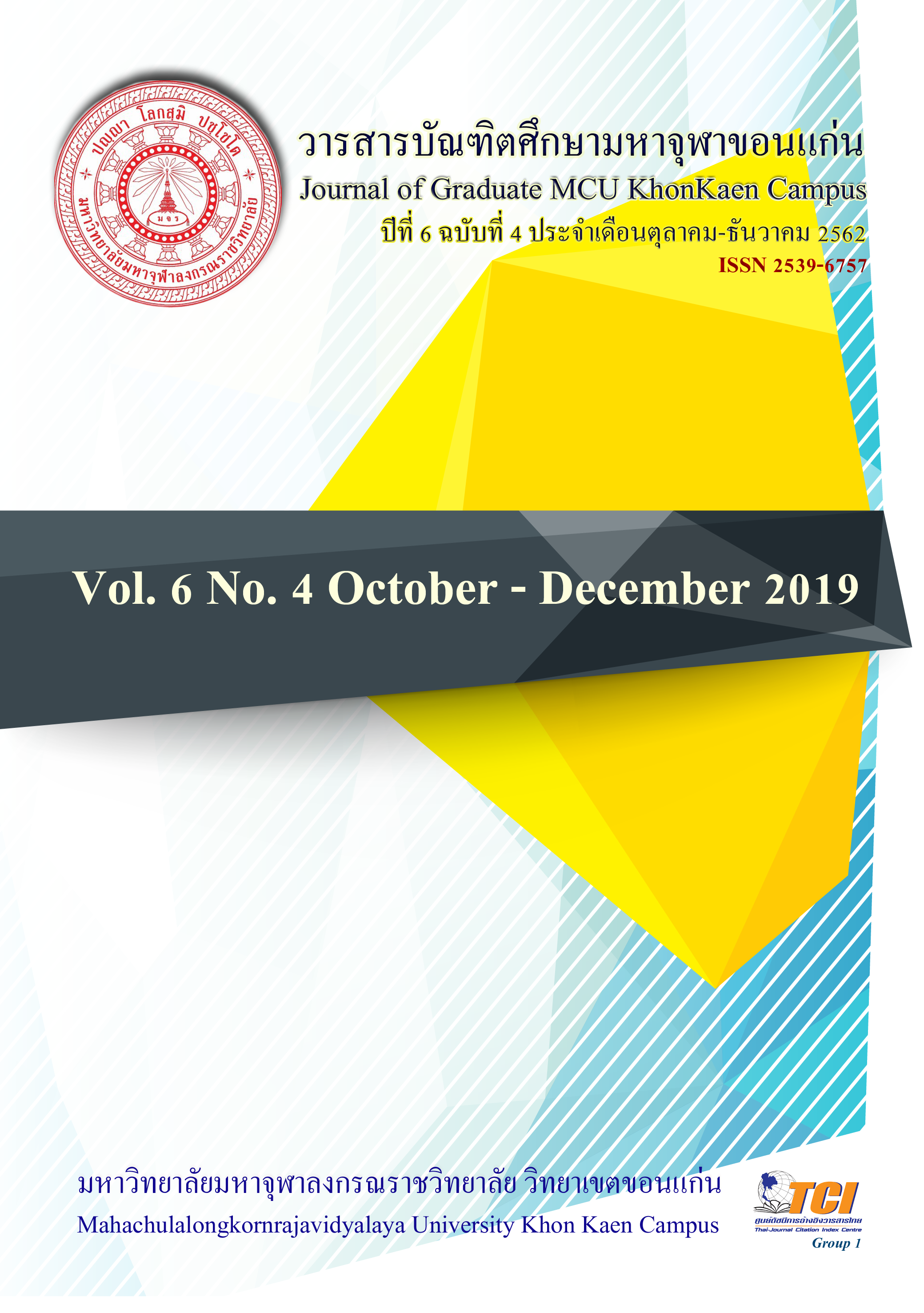Learning Management On Buddhist Subject Of Teachers Based On Sarniyadhamma 6 at Phrapariyaditdham General Education Schools Kalasin Province
Main Article Content
Abstract
The aims of this research were: to study the conditions of learning management in the subject ‘Buddhism’ of the teachers by using VI Sāraṇīyadhamma (virtues for fraternal living) of Phrapariyatti-dhamma schools (general education) in Kalasin province; 2) to compare the learning management as mentioned based on the status, positions and experiences of the samples; 3) to study the suggestions to develop the above mentioned learning management. The samples of this research included the administrators and teachers and the statistics used were: Frequency, Mean, Standard Deviation, t-test (Independent) and f-test.
The research results were as follows:
The statistic score of the conditions of learning management in the subject ‘Buddhism’ of the teachers by using VI Sāraṇīyadhamma (virtues for fraternal living) of Phrapariyatti-dhamma schools (general education) in Kalasin province in overall was at a high level. The scores of all studied aspects were the same; the highest score can be seen in the aspect of Diṭṭhisāmaññatā (to be endowed with right views along with one’s fellows, openly and in private), to have the mutual opinion as the important principle to liberation, followed by Mettāvacīkamma (to be amiable in word), Mettākāyakamma (to be amiable in deed), Sādhāraṇabhogitā (to share any lawful gains with virtuous fellows), Sīlasāmaññatā (to keep without blemish the rules of conduct along with one’s fellows, openly and in private) and Mettāmanokamma (to be amiable in thought, openly and in private) respectively. The comparative statistic scores of the learning management in the research are were indifferent in both overall and each aspect perspectives.
The suggestions to develop the learning management in the studied schools are that the schools should promote good culture in schools, especially respect for each other, kindness, generosity, unity, good behavior, goodness, mutual discipline, acceptance to the opinions of others, morale and encouragement, expression of honesty, honesty to the duty, helping colleagues willingly, polite behavior, respect in working together in educational institutions; this will bring benefits in improving and developing the work of school administrators and teachers to be more effective.
Article Details
References
Educational institutions under the office of KhonKaen Primary Education Area Office 1. Buddhist Thesis Master of
Arts. Graduate School : Mahachulalongkornrajavidyalaya University.
Aphonrat Lertphairod. (2011). The satisfaction of people towards public service according to Saraniyatham,
Nakhonsawan Province. Master of Science, Master of Arts, Master of Public Administration, Graduate School,
Mahachulalongkornrajavidyalaya University.

